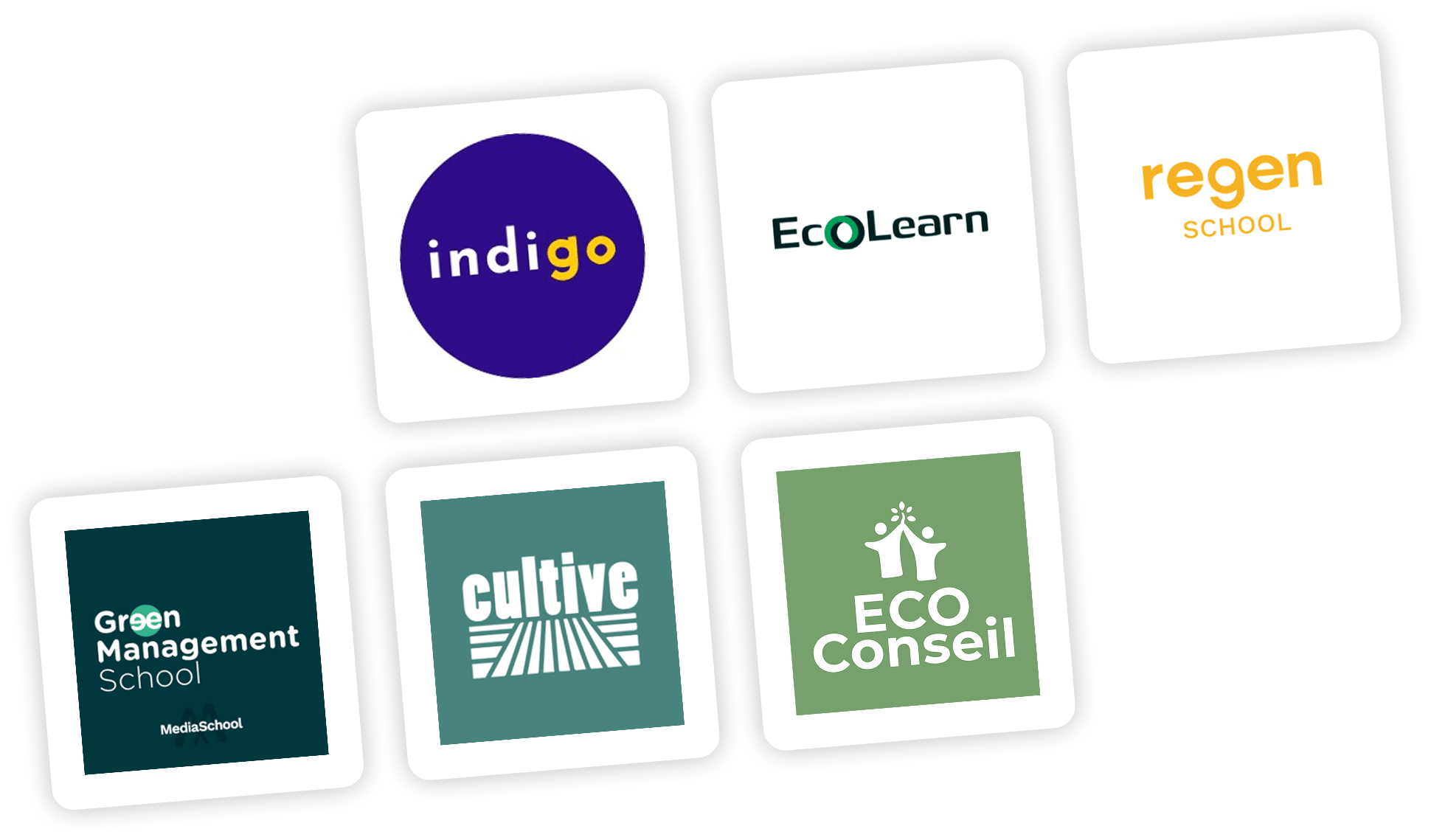Paumé-e-s - 6 reasons why employees take a skills assessment
In 2004, Laura Genevois became aware of climate issues. On the personal side, she knew how to act, but she would be searching for her professional path for a long time. Initially a CSR manager in a large company, she then worked at Zero Waste France, and co-founded the Réseau Vrac. While she coaches zero-waste entrepreneurs, she is regularly approached by people looking for commitment in their work, but who don't want to go down the entrepreneurial route. To support them, she decided to take action. She has surrounded herself with a team of career guidance experts who are familiar with environmental and social issues. They have all made a professional transition, and with them she founded the training organization Mon Job de Sens. Today, over 500 people have undergone a skills assessment with Mon Job de Sens.
We wanted to understand why so many employees were taking skills assessments. What are employees looking for in a skills assessment? When is it worth offering one to employees? As HR managers, why might partnerships with skills assessment organizations be relevant?
Laura, founder, and Sophie, Communications Director at Mon Job de Sens, answered our questions!

Laura Genevois - Founder of Mon Job de Sens
6 reasons why employees take a skills assessment
For Sophie Fabbi, employees who take part in assessments come both because they have certain needs, but also because they feel they are being held back in their professional development towards impact. Here they are:
3 needs that lead to a skills assessment
The feeling of being lost
Sophie - "People come because they feel they're going round in circles, lost-e-s. They don't know how to move forward. In many cases, there are varying degrees of unhappiness: from just being fed up to burn-out. The causes of these unhappinesses can be internal reorganizations, toxic or demanding management, heavy workloads or even pressure."
The "wise child" syndrome
Sophie - "Some also come because they've moved on as opportunities arose. These are people who worked well at school, who followed great studies and who made choices by default, without thinking too much. Today, they don't find meaning in their lives and want to make choices that are more in tune with them.
A sense of urgency in the current context
Sophie - "Well, some people come because their eco-anxious: the world is going badly and their job isn't useful. So there's a need to act fast and quickly find meaning and stability."
3 obstacles to taking action
Lack of legitimacy
Sophie - "People also face obstacles that prevent them from making impact-oriented career transitions. Often, they feel they have no expertise in the field in which they would like to work. Yet they have many cross-disciplinary skills acquired through previous experience. The assessment enables them to take stock of their strengths and make the most of them".
Lack of network
Sophie - "When you don't know enough about the structures that can support you, the professions and the transition ecosystem, it can be difficult to project yourself into it".
Financial instability
Sophie - "Making a career change often means taking imagined or real risks, especially financial ones, which are linked to this fear of knowing whether or not you'll succeed."

Sophie Fabbi - Communications Director, Mon Job de Sens
Recruit talent committed to your raison d'être
jobs_that_makesense is the n°1 site for candidates who want to give meaning to their work. Advertise to 200,000 committed candidates, and join a community of over 7,000 HR professionals in the impact ecosystem!
When employees come to you with internal problems, what do you offer them?
Laura - When current employees come to us for a skills assessment because they have questions, we help them clarify their needs. The point of a skills assessment is to put all their issues side by side, so as to understand which ones are sticking. Once an employee knows this, and has taken a step back and calmed down, they can talk about it. People can then have healthy communication with their HR or HRD.
Do you have any examples of people for whom a skills assessment has led to internal mobility?
Sophie - Yes, I'm thinking of Hélène, who was in charge of marketing choices for department presentations in a large household appliance sales group. She liked her company but wanted to take on more committed missions. The skills assessment enabled her to better understand her talents, strengths and desires. Following the skills assessment, she made an appointment with her manager to discuss her career aspirations, and her position evolved to include more environmental issues, while retaining the missions she enjoyed today. She now works in the store's CSR section;
How can companies benefit from skills assessments?
Sophie - Employees can be afraid to ask for funding for a skills assessment, because there can be this injunction to say to rhs: it's because he wants to leave. However, the assessment helps to clarify the employee's professional needs and desires. If the assessment enables them to pinpoint a problem in their current situation, solutions can be found internally: a change of team, a change of mission... Leaving is just one option among many. If the employee realizes that he or she really isn't in the right place and wants to leave, it's in the company's interest to let him or her go, rather than holding on to a demotivated person at all costs.
Laura - The worst thing for a company is the cost of inaction. I'll use an example that everyone can relate to: when you have to go to the bathroom at night, you're lazy to get up, and you tell yourself you'll go back to sleep. You know it's not going to work. It's the same in HR. We have people who, when they come to see us, say "I've been feeling bad about my job for 2 years." It's a waste of time for the person and a waste of money for the company.
The final word ?
Adapting to tomorrow's world is a marathon, not a sprint. We want people to want to go into the morning with a smile on their face. To do that, they have to be able to enjoy themselves on a daily basis. We're not fighting a war, we're setting new ground rules for the world. To achieve this, we need to communicate better together. What we're trying to do with the skills assessment is to support people in these new rules of the game, to build a world in which we can live together.
TO FIND OUT MORE
👉 Take stock with Mon Job de Sens
👉 The 12 skills assessments recommended by jobs_that_makesense



